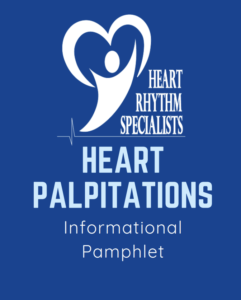What are Heart Palpitations?
Heart palpitations caused by abnormal or fast cardiac rhythms have many presentations but are often described as a pounding, racing or fluttering. They can be the result of stress, exercise, or medicine, but sometimes they are a symptom of a serious underlying condition or arrhythmia.
How are Palpitations Diagnosed?
Dr. Yoo will use a combination of
a physical exam, medical history,
and, if necessary, testing to
discover what is causing your
palpitations. Tests may include:
- electrocardiogram (ECG)
- Holter monitor
- event monitor
- echocardiogram
- stress test
- electrophysiological (EP) test
Risk Factors include:
- anxiety disorder
- medications or stimulants
- pregnancy, menstruation, or
menopause - hyperthyroidism
- history of heart attack(s), heart
defects, arrhythmias, or other
heart problems - history of heart surgery
Causes of Heart Palpitations include:
- stress, anxiety, or panic attacks
- depression
- strenuous exercise
- stimulants such as caffeine, nicotine, and amphetamines,
- fever or respiratory illnesses
Symptoms of Heart Palpitations
Heart palpitations may feel like your heart is beating too fast, too
hard, or irregularly. Tell Dr. Yoo if you also experience any of the following:
- chest pain (angina) or discomfort
- fainting (syncope)
- shortness of breath
- dizziness or lightheadedness
- confusion
- weakness
- excessive sweating
- pain in arms, neck, jaw, or upper back
- a resting heart rate above 100 bpm (tachycardia)
Treatments for Palpitations
Depending on your symptoms and the frequency and cause of
your palpitations. Dr. Yoo may recommend medical management
using antiarrythmics or an ablation procedure. Reducing the following
triggers can can also significantly reduce your symptoms:
- reducing stress
- avoiding stimulants
- eating a healthy diet
- regular exercise
- limiting alcohol
Additional Resources
